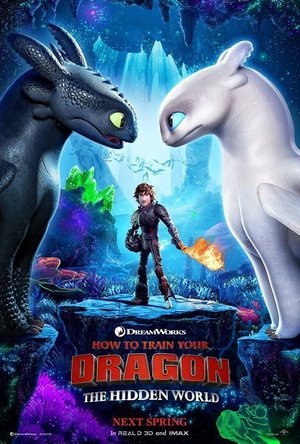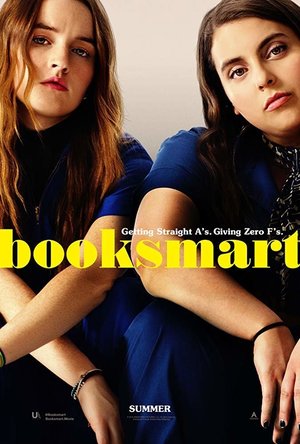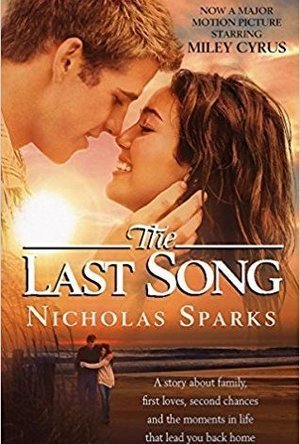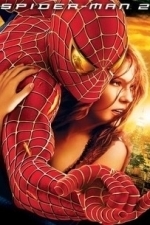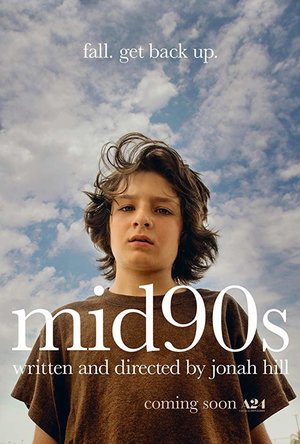Search
Search results
Heather Cranmer (2721 KP) rated Fractured Legacy (Fractured Legacy, #1) in Books
Jun 7, 2018
(This review can be found on my blog <a href="http://themisadventuresofatwentysomething.blogspot.com/">The (Mis)Adventures of a Twenty-Something Year Old Girl</a>).
I read the blurb to this book, and I was instantly hooked! A spooky ghost story involving ghost hunters? Yes, please! Luckily, I wasn't disappointed by this book.
Kaylyn and her sister Cole both work for a company called Aicil as paranormal investigators. When Kaylyn gets the opportunity to investigate the creepy and old Teague Hotel, she jumps at the chance. However, bad things start happening to Kaylyn. She's being attacked by an unseen force, having blackouts as well as very strange dreams. Kaylyn can't understand whys he's being trageted specifically, but with her job, as well as her life on the line, she'd better figure it out...and quickly.
I love the cover of Fractured Legacy! It has a really creepy look to go with the rest of the book. I think the cover suits the book well, and with a cover like that, you know the contents will be creepy as well.
The world building was definitely believable. I felt like I was Kaylyn, and it was a book about me. That's how great of a job the author did. I was feeling scared right along Kaylyn and feeling frustrated when she did. I also loved the setting. A creepy hotel is one of my top places for spookiness.
The pacing did start out a bit slow, and I was wondering if I had made a mistake in agreeing to review this. Then, I felt as if the pacing just zoomed, and I was left wondering what had happened. Thankfully, after the first few chapters, the pacing settles down, and I couldn't read this story fast enough. It's definitely a page turner!
The plot was fantastic! Creepy stories with bad entities in them have been done a lot, but Skye Callahan turns that classic plot into her own. There are also a few plot twists which I didn't predict until a few chapters before they are revealed. As for the ending, it's not a big cliff hanger, but since this is going to be a series, it is left open for another book (which I can't wait to read). Oh, and there isn't much romance in this book. In fact, I can't think of any, but I'm not a big romance fan so I enjoyed that this story focused solely on what was going on with Kaylyn.
I loved Kaylyn. There were times I just wanted to hug her because I liked her that much. She endures a lot and often times feels like she is going insane. However, she's a very strong character and bounces back. I also like Jonah. At first, I found him to be a bit arrogant, but my heart melted towards him, and I found myself thinking what a kind and caring man he was. I was hoping he and Kaylyn would get together throughout the book because they seemed so great together. I did like Cole, but there's not a lot of her after the first few chapters. She does seem like a very caring sister though.
I enjoyed the dialogue and found that it flowed smoothly. It goes back and forth between Kaylyn's point of view and Jonah's. There are a few grammatical mistakes but nothing major. There are a few swear words, but nothing over the top.
Overall, Fractured Legacy is a creepy read that will leave you wanting more...and wanting to leave the lights on! It has a fantastic plot, a creepy setting, and well rounded characters.
I'd recommend this book to those age 17+ who truly want to read something spooky!
(I received a free ecopy of this book from the author in exchange for a fair and honest review).
I read the blurb to this book, and I was instantly hooked! A spooky ghost story involving ghost hunters? Yes, please! Luckily, I wasn't disappointed by this book.
Kaylyn and her sister Cole both work for a company called Aicil as paranormal investigators. When Kaylyn gets the opportunity to investigate the creepy and old Teague Hotel, she jumps at the chance. However, bad things start happening to Kaylyn. She's being attacked by an unseen force, having blackouts as well as very strange dreams. Kaylyn can't understand whys he's being trageted specifically, but with her job, as well as her life on the line, she'd better figure it out...and quickly.
I love the cover of Fractured Legacy! It has a really creepy look to go with the rest of the book. I think the cover suits the book well, and with a cover like that, you know the contents will be creepy as well.
The world building was definitely believable. I felt like I was Kaylyn, and it was a book about me. That's how great of a job the author did. I was feeling scared right along Kaylyn and feeling frustrated when she did. I also loved the setting. A creepy hotel is one of my top places for spookiness.
The pacing did start out a bit slow, and I was wondering if I had made a mistake in agreeing to review this. Then, I felt as if the pacing just zoomed, and I was left wondering what had happened. Thankfully, after the first few chapters, the pacing settles down, and I couldn't read this story fast enough. It's definitely a page turner!
The plot was fantastic! Creepy stories with bad entities in them have been done a lot, but Skye Callahan turns that classic plot into her own. There are also a few plot twists which I didn't predict until a few chapters before they are revealed. As for the ending, it's not a big cliff hanger, but since this is going to be a series, it is left open for another book (which I can't wait to read). Oh, and there isn't much romance in this book. In fact, I can't think of any, but I'm not a big romance fan so I enjoyed that this story focused solely on what was going on with Kaylyn.
I loved Kaylyn. There were times I just wanted to hug her because I liked her that much. She endures a lot and often times feels like she is going insane. However, she's a very strong character and bounces back. I also like Jonah. At first, I found him to be a bit arrogant, but my heart melted towards him, and I found myself thinking what a kind and caring man he was. I was hoping he and Kaylyn would get together throughout the book because they seemed so great together. I did like Cole, but there's not a lot of her after the first few chapters. She does seem like a very caring sister though.
I enjoyed the dialogue and found that it flowed smoothly. It goes back and forth between Kaylyn's point of view and Jonah's. There are a few grammatical mistakes but nothing major. There are a few swear words, but nothing over the top.
Overall, Fractured Legacy is a creepy read that will leave you wanting more...and wanting to leave the lights on! It has a fantastic plot, a creepy setting, and well rounded characters.
I'd recommend this book to those age 17+ who truly want to read something spooky!
(I received a free ecopy of this book from the author in exchange for a fair and honest review).
Gareth von Kallenbach (980 KP) rated How To Train Your Dragon: The Hidden World (2019) in Movies
Jul 2, 2019
Universal Pictures is wrapping up its How To Train Your Dragon Trilogy with the release of the film: How To Train Your Dragon: Hidden World, set to release on Friday, February 22, 2019.
The film brings back the same core cast of characters as the previous two movies, with Hiccup (Jay Baruchel), Astrid, (America Ferrera), Valka (Cate Blanchet), Eret (Kit Harrington), Gobber (Craig Ferguson), Snotlout (Jonah Hill), Ruffnutt (Kristen Wiig), Tuffnut (TJ Miller), Fishlegs (Christopher Mintz-Plasse), and flashback appearances of Stoic (Gerard Butler).
The story opens on what is supposed to be a “stealthy raid” but isn’t, quite.
We learn that Hiccup and his band of friends (both Dragon and human) are on a continuous mission to rescue captured Dragons from the poachers determined to capture and exploit them.
Hiccup and his friends then bring the rescued dragons back to Berk which is now a “Dragon-Viking utopia”. This arrangement, however idyllic, does not appear to be sustainable in the long-term. It is crowded and messy and Berk is just simply running out of room to house any more Dragons! Astrid and Gobber are concerned that housing all the Dragons on Berk makes the settlement a target for the Dragon hunters, endangering the entire community.
Hiccup is still exploring and reading his father’s old records, and remains convinced that there is “more” out there. He enlists Astrid’s help in finding the hidden world where he believes that all of Berk could move to, with their Dragons to leave in peace and secrecy.
After an attack on Berk, the rest of the community is convinced that Hiccup is right (even as he is not fully convinced himself of his ability to lead them successfully) and agrees to follow him in his search for the Hidden World sanctuary.
The story follows them on their quest and the dangers and successes of the journey to find a new, more suitable home.
The music, animation, and scenery in this movie is great. The details are phenomenal, from the characters’ hair, to the movements of the Dragons, to the Hidden World cave details, really show the attention that was paid in making this movie stand out!
The story line itself, as a continuation of the previous two movies, flows well, and follows an appropriate arc, both as far as relationships as well as time.
The addition of a new Dragon, and the relationship that evolves between the Light Fury and Toothless brings a new level of evolution to the existing relationship between Toothless and Hiccup, and plays on the adage of “if you love something, set it free”.
I laughed throughout the movie, at the dragons’ antics and expressions and interactions with their humans and each other. I held my breath in anticipation at some aspects, and heard myself say ‘oh no!” under my breath at one point as well. Dragons 3 drew me in from the start, and didn’t let go till the very end of the credit rolled. (We stayed until the lights came back up, and even the credits had me smiling with their small surprises!)
I found myself both wishing that this installment wouldn’t be “the end” as well as acknowledging that this story provided a fitting end to the series of films.
If there MUST be an end, this film wraps up the story nicely and provides closure, while yet leaving enough room to imagine what might come next.
I would give this movie 5 out of 5 stars, and while we did not see it in IMAX or 3D, if you have those options available, I would recommend that as well!
The film brings back the same core cast of characters as the previous two movies, with Hiccup (Jay Baruchel), Astrid, (America Ferrera), Valka (Cate Blanchet), Eret (Kit Harrington), Gobber (Craig Ferguson), Snotlout (Jonah Hill), Ruffnutt (Kristen Wiig), Tuffnut (TJ Miller), Fishlegs (Christopher Mintz-Plasse), and flashback appearances of Stoic (Gerard Butler).
The story opens on what is supposed to be a “stealthy raid” but isn’t, quite.
We learn that Hiccup and his band of friends (both Dragon and human) are on a continuous mission to rescue captured Dragons from the poachers determined to capture and exploit them.
Hiccup and his friends then bring the rescued dragons back to Berk which is now a “Dragon-Viking utopia”. This arrangement, however idyllic, does not appear to be sustainable in the long-term. It is crowded and messy and Berk is just simply running out of room to house any more Dragons! Astrid and Gobber are concerned that housing all the Dragons on Berk makes the settlement a target for the Dragon hunters, endangering the entire community.
Hiccup is still exploring and reading his father’s old records, and remains convinced that there is “more” out there. He enlists Astrid’s help in finding the hidden world where he believes that all of Berk could move to, with their Dragons to leave in peace and secrecy.
After an attack on Berk, the rest of the community is convinced that Hiccup is right (even as he is not fully convinced himself of his ability to lead them successfully) and agrees to follow him in his search for the Hidden World sanctuary.
The story follows them on their quest and the dangers and successes of the journey to find a new, more suitable home.
The music, animation, and scenery in this movie is great. The details are phenomenal, from the characters’ hair, to the movements of the Dragons, to the Hidden World cave details, really show the attention that was paid in making this movie stand out!
The story line itself, as a continuation of the previous two movies, flows well, and follows an appropriate arc, both as far as relationships as well as time.
The addition of a new Dragon, and the relationship that evolves between the Light Fury and Toothless brings a new level of evolution to the existing relationship between Toothless and Hiccup, and plays on the adage of “if you love something, set it free”.
I laughed throughout the movie, at the dragons’ antics and expressions and interactions with their humans and each other. I held my breath in anticipation at some aspects, and heard myself say ‘oh no!” under my breath at one point as well. Dragons 3 drew me in from the start, and didn’t let go till the very end of the credit rolled. (We stayed until the lights came back up, and even the credits had me smiling with their small surprises!)
I found myself both wishing that this installment wouldn’t be “the end” as well as acknowledging that this story provided a fitting end to the series of films.
If there MUST be an end, this film wraps up the story nicely and provides closure, while yet leaving enough room to imagine what might come next.
I would give this movie 5 out of 5 stars, and while we did not see it in IMAX or 3D, if you have those options available, I would recommend that as well!

FarFaria Stories To Read Along
Education and Book
App
- “Brain Expander” –Parenting Magazine - “Netflix for Children's Books!” –USA Today -...

My First Bible Stories for Family & Sunday School
Book and Education
App
Favourite Bible Stories in simple words & bright pictures to introduce your kids to the Lord. • A...

365 Bible Stories | Daily Short Stories for Kids
Book and Education
App
365 Bible Short Stories to enjoy sharing the Bible with your kids. • An easy way to talk about...

Catholic New American Bible Revised Edition
Reference
App
This iPhone/iPad app has been approved by the United States Conference of Catholic Bishops (USCCB). ...
Bob Mann (459 KP) rated Booksmart (2019) in Movies
Sep 28, 2021
A raunchy but extremely funny teen-sex comedy.
A panda’s eye view of teenage life.
I tend to struggle to find a really good comedy to add to my top 10 of the year. Last year it was “Game Night” that made my list. One that is definitely heading there this year is “Booksmart”.
A retread on a well-travelled tyre.
The coming of age school comedy has been rehashed multiple times. These include films as varied as “Napoleon Dynamite”, “Superbad”, “Easy A”, “Mean Girls”, “Never Been Kissed” and “10 Things I Hate About You”. In tone, “Booksmart” is probably closest to “Superbad”, but it manages – under the direction of actress Olivia Wilde, in her debut feature – to establish a quirky likeability all of its own. An instant classic in the making.
Not for the prudish.
The story concerns two BFF’s – Molly (Beanie Feldstein, sister of Jonah Hill) and Amy (Kaitlyn Dever). They have both spent their young lives trying to score A’s at school in lieu of all other distractions. On the eve of their graduation, Molly realises that this was not a binary option. Her school companions have managed to get all of the success without any of the self-sacrifice! She calls “Malala”! And the duo proceed on a drink and drug-fuelled night to catch up on all the school social life they have missed out on!
Part of this catching up includes sex, and with Amy as a naive wannabe lesbian, in awe of tom-boy skateboarder Ryan (Victoria Ruesga), coming out has never seemed so painful.
I first saw this on a plane and guffawed so much that I went out to buy the DVD for a family viewing. Watching it again though, it is really very, very rude. If you were to categorize it, I think “sex comedy” would be a primary tag. A clumsy but realistic scene between Amy and the “hot girl” Hope (Diana Silvers… who really is) is excruciatingly hard to watch. This can therefore prove an uncomfortable co-watch for ‘young folks’ who – despite all the obvious evidence! – assume their parents / in-laws have done nothing in the past other than hold hands!! 🙂
In a great ensemble cast, Kaitlyn Dever is a revelation.
Kaitlyn Dever has cut her teeth with supporting roles on a few B-grade movies this year including “Beautiful Boy” and “The Front Runner“. But here she takes centre stage and is an absolute revelation as the sexually bemused teen. While Beanie Feldstein has the more obvious comic lead role, it is Dever who continually grabbed my attention with her acting skills. This young lady is added to my “one to watch” list.
This is not to decry the rest of the cast. For this is a great ensemble performance from a pretty unknown cast. The only familiar faces are Lisa Kudrow and Jason Sudeikis, but they only have bit parts.
The only role that didn’t quite work for me was that of the kooky drugged out hippie Gigi (Billie Lourd). It was all a bit too over-the-top for me in a movie that didn’t really need that sort of manic angle. (However, this did set up a Marwen-style drug scene that made me snort… with laughter).
As a comedy, will this by the whole you think it is?
I think this will prove to be a firm young person’s favourite for many years to come. Whether you will find it funny or not will probably depend on the setting of your ‘crudometer’ and your resilience to bad language on screen.
For me, personally, I am clearly still 17 on the inside! I loved it. Not only do I think it a good comedy. It is also a feel-good movie about best friends; a coming of age lesbian adventure; and a film that treats the multi-coloured spectrum of modern sexual variety as something entirely normal and to be celebrated.
I tend to struggle to find a really good comedy to add to my top 10 of the year. Last year it was “Game Night” that made my list. One that is definitely heading there this year is “Booksmart”.
A retread on a well-travelled tyre.
The coming of age school comedy has been rehashed multiple times. These include films as varied as “Napoleon Dynamite”, “Superbad”, “Easy A”, “Mean Girls”, “Never Been Kissed” and “10 Things I Hate About You”. In tone, “Booksmart” is probably closest to “Superbad”, but it manages – under the direction of actress Olivia Wilde, in her debut feature – to establish a quirky likeability all of its own. An instant classic in the making.
Not for the prudish.
The story concerns two BFF’s – Molly (Beanie Feldstein, sister of Jonah Hill) and Amy (Kaitlyn Dever). They have both spent their young lives trying to score A’s at school in lieu of all other distractions. On the eve of their graduation, Molly realises that this was not a binary option. Her school companions have managed to get all of the success without any of the self-sacrifice! She calls “Malala”! And the duo proceed on a drink and drug-fuelled night to catch up on all the school social life they have missed out on!
Part of this catching up includes sex, and with Amy as a naive wannabe lesbian, in awe of tom-boy skateboarder Ryan (Victoria Ruesga), coming out has never seemed so painful.
I first saw this on a plane and guffawed so much that I went out to buy the DVD for a family viewing. Watching it again though, it is really very, very rude. If you were to categorize it, I think “sex comedy” would be a primary tag. A clumsy but realistic scene between Amy and the “hot girl” Hope (Diana Silvers… who really is) is excruciatingly hard to watch. This can therefore prove an uncomfortable co-watch for ‘young folks’ who – despite all the obvious evidence! – assume their parents / in-laws have done nothing in the past other than hold hands!! 🙂
In a great ensemble cast, Kaitlyn Dever is a revelation.
Kaitlyn Dever has cut her teeth with supporting roles on a few B-grade movies this year including “Beautiful Boy” and “The Front Runner“. But here she takes centre stage and is an absolute revelation as the sexually bemused teen. While Beanie Feldstein has the more obvious comic lead role, it is Dever who continually grabbed my attention with her acting skills. This young lady is added to my “one to watch” list.
This is not to decry the rest of the cast. For this is a great ensemble performance from a pretty unknown cast. The only familiar faces are Lisa Kudrow and Jason Sudeikis, but they only have bit parts.
The only role that didn’t quite work for me was that of the kooky drugged out hippie Gigi (Billie Lourd). It was all a bit too over-the-top for me in a movie that didn’t really need that sort of manic angle. (However, this did set up a Marwen-style drug scene that made me snort… with laughter).
As a comedy, will this by the whole you think it is?
I think this will prove to be a firm young person’s favourite for many years to come. Whether you will find it funny or not will probably depend on the setting of your ‘crudometer’ and your resilience to bad language on screen.
For me, personally, I am clearly still 17 on the inside! I loved it. Not only do I think it a good comedy. It is also a feel-good movie about best friends; a coming of age lesbian adventure; and a film that treats the multi-coloured spectrum of modern sexual variety as something entirely normal and to be celebrated.
Haley Mathiot (9 KP) rated The Last Song in Books
Apr 27, 2018
My Summary: Ronnie does not want to spend the summer with her dad. Her dad left them three years ago, and she hasn’t really forgiven him for it. She hated him for it so much, that she refused to take his calls, quit playing the piano, and never read the letters he sent her. What is she going to do all summer stuck with a dad she hates in a small town with nothing but sand on every side of her, no clubs, no friends…
When she finds Will, the cutest volley-ball players slash aquarium volunteer in her back yard helping her protect un-hatched sea turtles from being eaten by raccoons, she judged him as not-her-type. She doesn’t expect to find a friend in a jock-rich-perfect-family boy, nor does she expect that this will be the best—most exciting, most scary, most fun, most painful—summer of her lifetime.
My Review: I’m not really sure where to start here, other than I am so utterly pleased with The Last Song, I cannot begin to find words to describe it.
Ronnie, Jonah (her brother), Her dad Steve, Will… all the characters really, were such real characters. I felt everything they felt, I laughed when they laughed, and I (nearly) cried when they cried.
I hate it when books suffer from "happy-land syndrome—" where everything works out just too perfectly that it seems silly. The Last Song seemed to work perfectly, but it didn’t have that plot-manipulated feel to it. It didn’t feel like Sparks was just trying to move the story along and causing things to line up too perfectly to be realistic—it felt like the story was writing itself, and it was perfect. The pacing didn’t feel rushed or slow. It was not a thriller, but I did find myself sitting on the edge of my seat dying to find out what happens. I read it through in two or three days (which is fast for me right now, what with school the way it is!). There are twists, there are surprises—some beautiful, some painful, but all wonderful.
The writing was contemporary. It was easy reading and it wasn’t Dostoevsky, but it wasn’t bad either. The humor was light and witty and sarcastic, sometimes laugh out loud, and more times than I can count my sister would look up from her homework and say “Haley. What is so funny?” The perspective alternated between several different characters, but it wasn’t disorientating. It was all from third person perspective, but I still felt like I could get inside the character’s head.
The end was perfect. That’s all I can really say about it because any information would totally ruin the story. All the loose ends were tied, all the questions were answered, and the ending was open to the future but closed in a wonderful conclusion. Suffice to say I grinned so wide I couldn’t see, and my cheeks are still sore.
Audio Review: Let’s just say that I almost gave up reading The Last Song when I started listening to the audio. Pepper Binkley read Ronnie’s perspective and had a high pitched voice, she read a little too fast (which is rare. Most of the time readers are way too slow), there was no differentiating between voices of characters so you couldn’t tell who was talking, and she seemed up tight and nervous. Scott Sowers read the various men’s perspectives, and he read alright. He was a little slow and his voice took some getting used to but he was otherwise ok. I did get too frustrated to get far in the audio book though. I ended up quitting and reading the paperback. I recommend reading The Last Song over listening to it.
Content: blissfully clean. There was romance between Will and Ronnie, but no sex. It wasn’t needed, either. I feel like the fact that they didn’t sleep together added to the book rather than took away from it. It was also clean of foul language. There was some mention of God and the Bible, but never did it feel like Sparks was preaching.
Recommendation: Ages 14+
When she finds Will, the cutest volley-ball players slash aquarium volunteer in her back yard helping her protect un-hatched sea turtles from being eaten by raccoons, she judged him as not-her-type. She doesn’t expect to find a friend in a jock-rich-perfect-family boy, nor does she expect that this will be the best—most exciting, most scary, most fun, most painful—summer of her lifetime.
My Review: I’m not really sure where to start here, other than I am so utterly pleased with The Last Song, I cannot begin to find words to describe it.
Ronnie, Jonah (her brother), Her dad Steve, Will… all the characters really, were such real characters. I felt everything they felt, I laughed when they laughed, and I (nearly) cried when they cried.
I hate it when books suffer from "happy-land syndrome—" where everything works out just too perfectly that it seems silly. The Last Song seemed to work perfectly, but it didn’t have that plot-manipulated feel to it. It didn’t feel like Sparks was just trying to move the story along and causing things to line up too perfectly to be realistic—it felt like the story was writing itself, and it was perfect. The pacing didn’t feel rushed or slow. It was not a thriller, but I did find myself sitting on the edge of my seat dying to find out what happens. I read it through in two or three days (which is fast for me right now, what with school the way it is!). There are twists, there are surprises—some beautiful, some painful, but all wonderful.
The writing was contemporary. It was easy reading and it wasn’t Dostoevsky, but it wasn’t bad either. The humor was light and witty and sarcastic, sometimes laugh out loud, and more times than I can count my sister would look up from her homework and say “Haley. What is so funny?” The perspective alternated between several different characters, but it wasn’t disorientating. It was all from third person perspective, but I still felt like I could get inside the character’s head.
The end was perfect. That’s all I can really say about it because any information would totally ruin the story. All the loose ends were tied, all the questions were answered, and the ending was open to the future but closed in a wonderful conclusion. Suffice to say I grinned so wide I couldn’t see, and my cheeks are still sore.
Audio Review: Let’s just say that I almost gave up reading The Last Song when I started listening to the audio. Pepper Binkley read Ronnie’s perspective and had a high pitched voice, she read a little too fast (which is rare. Most of the time readers are way too slow), there was no differentiating between voices of characters so you couldn’t tell who was talking, and she seemed up tight and nervous. Scott Sowers read the various men’s perspectives, and he read alright. He was a little slow and his voice took some getting used to but he was otherwise ok. I did get too frustrated to get far in the audio book though. I ended up quitting and reading the paperback. I recommend reading The Last Song over listening to it.
Content: blissfully clean. There was romance between Will and Ronnie, but no sex. It wasn’t needed, either. I feel like the fact that they didn’t sleep together added to the book rather than took away from it. It was also clean of foul language. There was some mention of God and the Bible, but never did it feel like Sparks was preaching.
Recommendation: Ages 14+
Ryan Hill (152 KP) rated Spider-Man 2 (2004) in Movies
Jul 1, 2019
"There's a hero in all of us"
One of the finest sequels ever made and still counted amongst the greatest superhero flicks in existence, Spider-Man 2 is a remarkable follow-up to its already-impressive predecessor that skilfully builds upon the solid foundation provided by the first film, presents significant upgrades in each filmmaking aspect and beautifully balances all its elements to succeed as not just a de-facto standard of its genre but also as one of the best films of its year.
Set two years after the events of the first film, the story of Spider-Man 2 finds Peter Parker struggling to balance his personal life & his obligations as Spider-Man. His love interest is engaged to someone else, his grades have been steadily declining and he also seems to be losing his powers. Meanwhile, a brilliant scientist named Dr. Otto Octavius transforms into a supervillain with four robotic tentacles fused to his spine after his effort to sustain a nuclear fusion reaction goes horribly wrong.
Directed by Sam Raimi, Spider-Man 2 is a far more mature effort from him in comparison to his previous venture and presents the director in sublime form for this sequel picks up the story right where it was left off the last time despite the 2 years span, progresses the arc of its reprising characters amazingly well while giving a proper introduction to the new ones, and also does an outstanding job in balancing its storytelling elements with moments of action in a seamless manner, due to which everything about this sequel just works.
Alvin Sargent's screenplay is worthy of praise as well for the story takes a darker approach than the last time yet packs in enough humour to prevent it from becoming too bleak, and although the cheesiness of the first chapter isn't reduced, the narrative flow is much more stream-lined than before. Production design team comes up with bigger, more refined set pieces, Cinematography preserves the vibrant camerawork but has a firmer grip on it this time while Editing is definitely one of its strongest aspects for there isn't a dull moment in the picture.
Visual effects is much improved as well and by not overdoing its CGI elements, it keeps the artificiality of its universe at bay for the most part. Sure a number of moments are over-the-top but most of them still fall under the realm of on-screen believability. Last but not the least, Danny Elfman delivers again with a splendid soundtrack that stays true to the original film's score, works as a wonderfully evolved successor, and captures the darker tone with finesse just like it did the last time. Even the existing songs used in the picture are nicely chosen & help compliment the respective sequences.
Coming to the performances, Tobey Maguire, Kirsten Dunst, James Franco & J.K. Simmons return to reprise their respective roles of Peter Parker, Mary Jane Watson, Harry Osborn & J. Jonah Jameson and do a better job than before. Maguire builds up on his earlier input to impress once again and what he lacks in star presence, he makes up for it by chipping in a complex performance. Simmons is hilarious as before, Dunst & Franco are still on base level but it's Alfred Molina who impresses the most in what is a sympathetic rendition of Doc Ock, thus making him a classic foe in every way.
On an overall scale, Spider-Man 2 delivers everything one can expect from a sequel. It goes bigger, better & more action-packed than before yet stays completely true to its origin, plus finishes on a high with enough open choices for where it can be headed in later instalments, something that Sony failed to take advantage of. Sam Raimi has weaved a magical web yet again that tightly grasps on to every necessary ingredient to come up with an incredibly fun, highly enjoyable, wildly entertaining & thoroughly satisfying extravaganza that promises yet another high-flying, web-sligning roller-coaster ride and effortlessly delivers it.
Set two years after the events of the first film, the story of Spider-Man 2 finds Peter Parker struggling to balance his personal life & his obligations as Spider-Man. His love interest is engaged to someone else, his grades have been steadily declining and he also seems to be losing his powers. Meanwhile, a brilliant scientist named Dr. Otto Octavius transforms into a supervillain with four robotic tentacles fused to his spine after his effort to sustain a nuclear fusion reaction goes horribly wrong.
Directed by Sam Raimi, Spider-Man 2 is a far more mature effort from him in comparison to his previous venture and presents the director in sublime form for this sequel picks up the story right where it was left off the last time despite the 2 years span, progresses the arc of its reprising characters amazingly well while giving a proper introduction to the new ones, and also does an outstanding job in balancing its storytelling elements with moments of action in a seamless manner, due to which everything about this sequel just works.
Alvin Sargent's screenplay is worthy of praise as well for the story takes a darker approach than the last time yet packs in enough humour to prevent it from becoming too bleak, and although the cheesiness of the first chapter isn't reduced, the narrative flow is much more stream-lined than before. Production design team comes up with bigger, more refined set pieces, Cinematography preserves the vibrant camerawork but has a firmer grip on it this time while Editing is definitely one of its strongest aspects for there isn't a dull moment in the picture.
Visual effects is much improved as well and by not overdoing its CGI elements, it keeps the artificiality of its universe at bay for the most part. Sure a number of moments are over-the-top but most of them still fall under the realm of on-screen believability. Last but not the least, Danny Elfman delivers again with a splendid soundtrack that stays true to the original film's score, works as a wonderfully evolved successor, and captures the darker tone with finesse just like it did the last time. Even the existing songs used in the picture are nicely chosen & help compliment the respective sequences.
Coming to the performances, Tobey Maguire, Kirsten Dunst, James Franco & J.K. Simmons return to reprise their respective roles of Peter Parker, Mary Jane Watson, Harry Osborn & J. Jonah Jameson and do a better job than before. Maguire builds up on his earlier input to impress once again and what he lacks in star presence, he makes up for it by chipping in a complex performance. Simmons is hilarious as before, Dunst & Franco are still on base level but it's Alfred Molina who impresses the most in what is a sympathetic rendition of Doc Ock, thus making him a classic foe in every way.
On an overall scale, Spider-Man 2 delivers everything one can expect from a sequel. It goes bigger, better & more action-packed than before yet stays completely true to its origin, plus finishes on a high with enough open choices for where it can be headed in later instalments, something that Sony failed to take advantage of. Sam Raimi has weaved a magical web yet again that tightly grasps on to every necessary ingredient to come up with an incredibly fun, highly enjoyable, wildly entertaining & thoroughly satisfying extravaganza that promises yet another high-flying, web-sligning roller-coaster ride and effortlessly delivers it.
Emma @ The Movies (1786 KP) rated Mid90s (2018) in Movies
Jun 22, 2019 (Updated Sep 25, 2019)
At 1 hour 25 minutes you'd be forgiven for thinking this would be a brief affair, but if you're not into it then this 85-minute film is agonisingly long.
Going into this the only thing I knew about this film was that it was directed by Jonah Hill, and I like him so that felt like something positive.
31 people had booked to see this preview at my Cineworld, I think there were maybe 10 of us that showed up. I have to say that there wasn't a lot of enthusiasm from any of us until it was time to leave.
Kudos on going with the 4:3 look on the screen and the grainier quality on the filming (I'm sure there are technical terms for that but I don't know them!) That combined with accurate costumes and settings to really take you back to the 90s. I found the smaller aspect to be rather distracting on the big screen though. I watch 4:3 a lot at home on my widescreen TV without it seeming odd, perhaps this is just one of those things, I go so often that I'm probably just expecting it to fill the whole screen.
The film starts with a particularly jarring scene, and while I don't have an issue with that shock impact I don't like that there's no context. You can infer things later on, but at no point do you explicitly find out the reason behind some of the shocking scenes. The film feels much more like we've been plonked down into his life rather than learning about it.
It's difficult to sum up how I feel about the characters.
Sunny Suljic is fine in the main role but there wasn't anything that wowed me from the role. That's no slur on the acting, I just didn't feel that the dialogue or story gave us more than a glance at his life.
Ray came across as the strongest out of all the skaters, we see a few different aspects of him and he gets a proper chance to open up. Had all the characters had this opportunity then I think we'd have had something much more interesting... but then teenage boys aren't notoriously fans of opening up emotionally on screen unless we're in a romantic film.
Those of you who read my reviews will know how I feel about Lucas Hedges, that is to say, I don't really get it. This role offers little backstory apart from the fact that he clearly has a long passion for beating the crap out of his brother, Stevie. Despite my growing indifference for him I feel like Hedges wasn't given enough time in the movie. I can see why he wasn't, Ian is hyper-aggressive and a very threatening presence so having more of him would have changed the dynamic a lot. Having more of him though might have allowed us to understand him a little bit more and take away some of the unanswered questions at the end of the film.
There are a lot of scenes with drug use and alcohol, and I can see those being relevant to the story, but the "sex" scene was uncomfortable and really didn't feel like it fit in at all. From the moment you see it coming to the point where the boys are prying out details of the encounter I sat there wondering why. Why it needed to be there and why the script was just so bad through it.
The ending was the only part of the film that actually made me feel anything for the characters and the events. That in itself is quite an achievement being that you can tell exactly what is coming. The way the final event is handled was visually striking and leads us into a moment where all the characters get to show something that finally feels like genuine emotion. I think it says a lot that the most effective bits of the film had no dialogue in them. The events at the end of this film saved Mid90s from getting one of the lowest ratings in my reviewing history.
I'd say that had they given over an extra 20 minutes to better character development then this would have been better, but I worry that an extra 20 minutes would just have made the event even more excruciating.
What you should do
I'm sure this has it's audience somewhere, after all, people seem to be raving about it. Sadly I am not that audience and I really can't recommend this to anyone.
Movie thing you wish you could take home
I love the idea of making customer skateboards.
Going into this the only thing I knew about this film was that it was directed by Jonah Hill, and I like him so that felt like something positive.
31 people had booked to see this preview at my Cineworld, I think there were maybe 10 of us that showed up. I have to say that there wasn't a lot of enthusiasm from any of us until it was time to leave.
Kudos on going with the 4:3 look on the screen and the grainier quality on the filming (I'm sure there are technical terms for that but I don't know them!) That combined with accurate costumes and settings to really take you back to the 90s. I found the smaller aspect to be rather distracting on the big screen though. I watch 4:3 a lot at home on my widescreen TV without it seeming odd, perhaps this is just one of those things, I go so often that I'm probably just expecting it to fill the whole screen.
The film starts with a particularly jarring scene, and while I don't have an issue with that shock impact I don't like that there's no context. You can infer things later on, but at no point do you explicitly find out the reason behind some of the shocking scenes. The film feels much more like we've been plonked down into his life rather than learning about it.
It's difficult to sum up how I feel about the characters.
Sunny Suljic is fine in the main role but there wasn't anything that wowed me from the role. That's no slur on the acting, I just didn't feel that the dialogue or story gave us more than a glance at his life.
Ray came across as the strongest out of all the skaters, we see a few different aspects of him and he gets a proper chance to open up. Had all the characters had this opportunity then I think we'd have had something much more interesting... but then teenage boys aren't notoriously fans of opening up emotionally on screen unless we're in a romantic film.
Those of you who read my reviews will know how I feel about Lucas Hedges, that is to say, I don't really get it. This role offers little backstory apart from the fact that he clearly has a long passion for beating the crap out of his brother, Stevie. Despite my growing indifference for him I feel like Hedges wasn't given enough time in the movie. I can see why he wasn't, Ian is hyper-aggressive and a very threatening presence so having more of him would have changed the dynamic a lot. Having more of him though might have allowed us to understand him a little bit more and take away some of the unanswered questions at the end of the film.
There are a lot of scenes with drug use and alcohol, and I can see those being relevant to the story, but the "sex" scene was uncomfortable and really didn't feel like it fit in at all. From the moment you see it coming to the point where the boys are prying out details of the encounter I sat there wondering why. Why it needed to be there and why the script was just so bad through it.
The ending was the only part of the film that actually made me feel anything for the characters and the events. That in itself is quite an achievement being that you can tell exactly what is coming. The way the final event is handled was visually striking and leads us into a moment where all the characters get to show something that finally feels like genuine emotion. I think it says a lot that the most effective bits of the film had no dialogue in them. The events at the end of this film saved Mid90s from getting one of the lowest ratings in my reviewing history.
I'd say that had they given over an extra 20 minutes to better character development then this would have been better, but I worry that an extra 20 minutes would just have made the event even more excruciating.
What you should do
I'm sure this has it's audience somewhere, after all, people seem to be raving about it. Sadly I am not that audience and I really can't recommend this to anyone.
Movie thing you wish you could take home
I love the idea of making customer skateboards.

